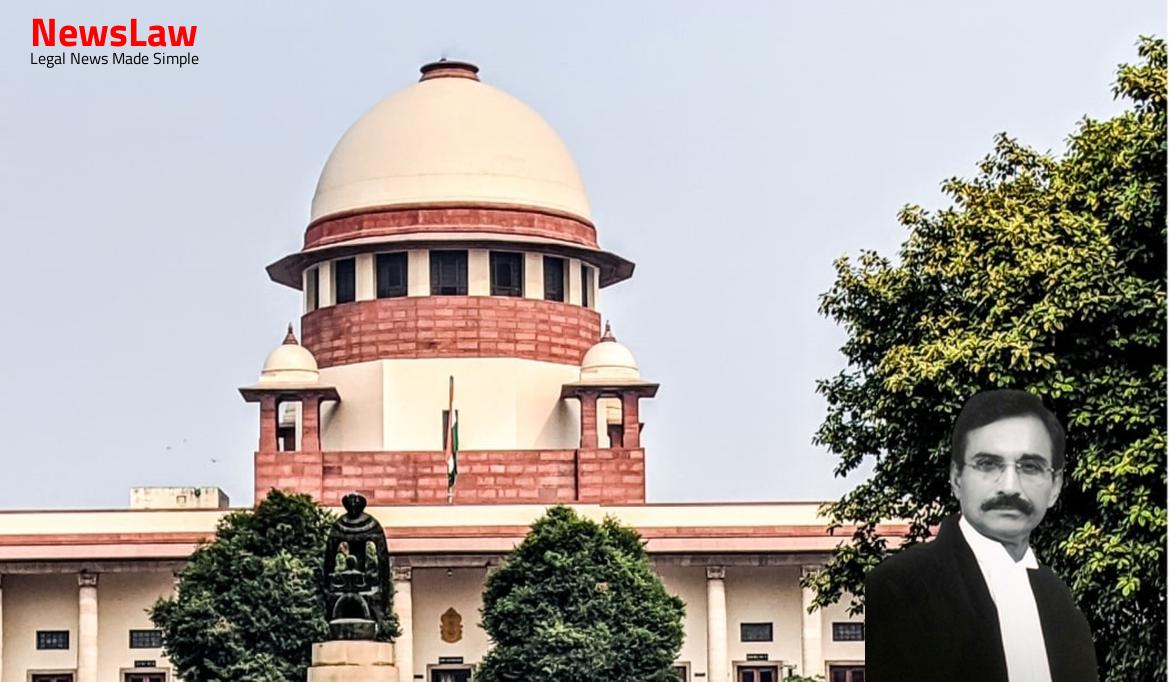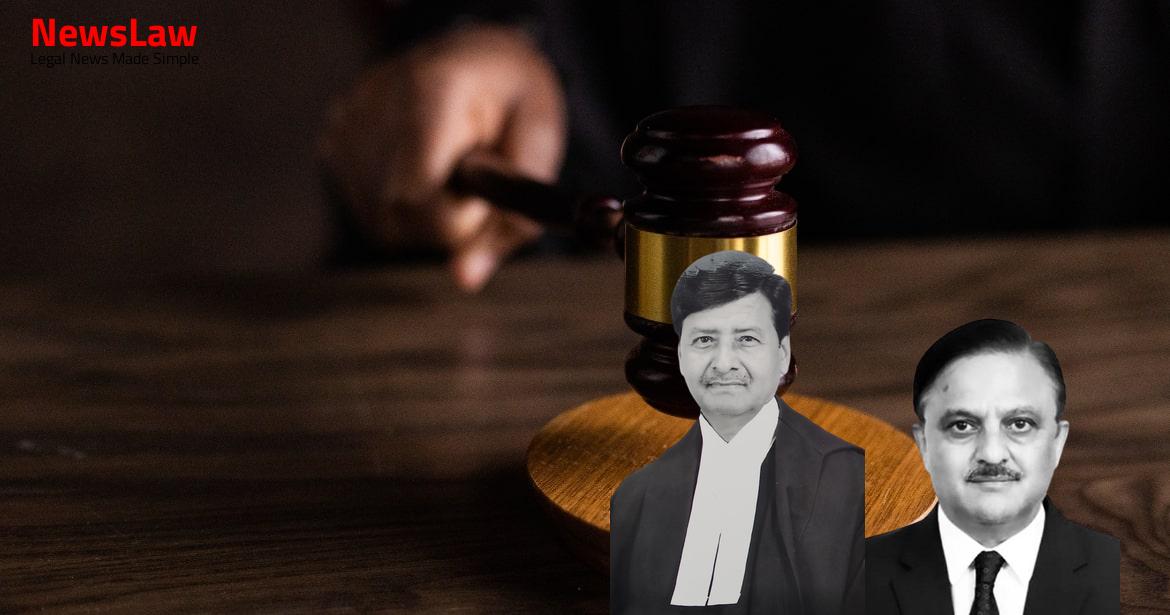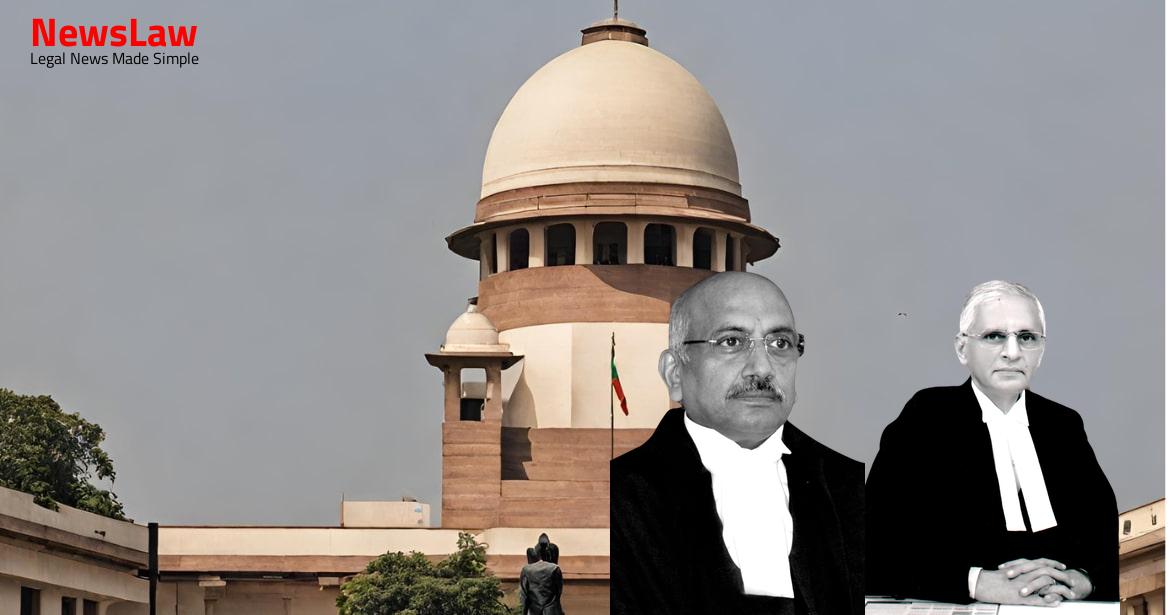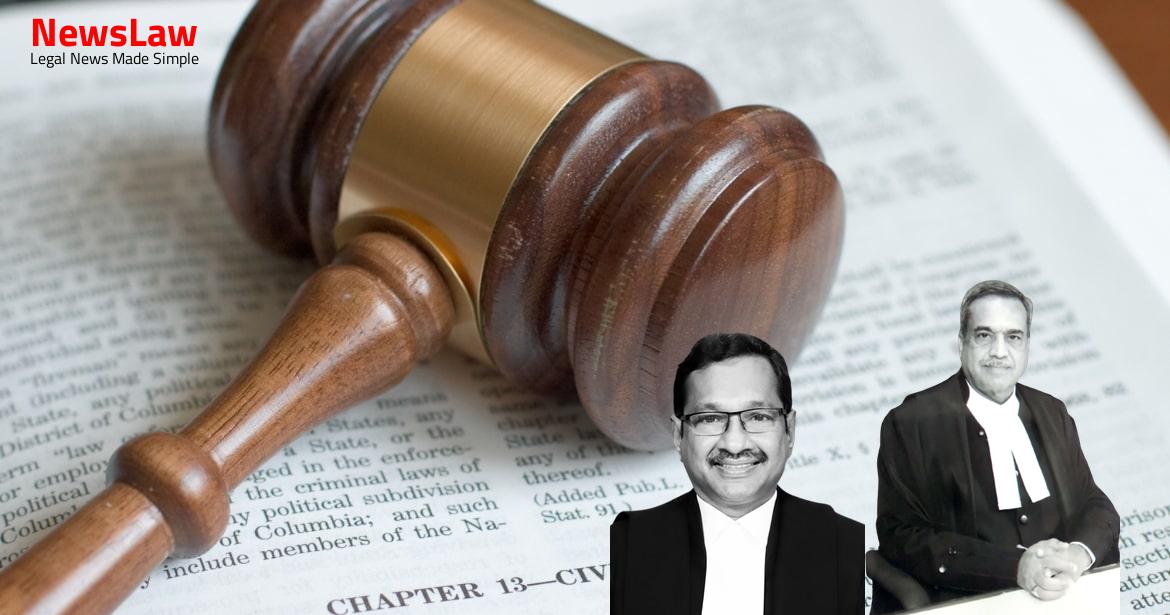The court’s in-depth legal analysis on the appointments of guest lecturers sheds light on the Division Bench’s decision and its implications. Stay tuned for a comprehensive summary of the court’s judgment in this intriguing case.
Facts
- The writ petitioners were directed to continue working on their respective posts until regular selections were made.
- The Division Bench of the High Court allowed the writ appeals filed by the State of Madhya Pradesh and Jan Bhagidari Samiti, setting aside the judgment of the learned single judge.
- The present appeals have been filed challenging the Division Bench’s decision, with arguments heard from both the appellants’ counsel and the Additional Solicitor General representing the respondents.
- District Collectors or their representatives were to be the ex-officio Deputy Chairman of the General Council of the Committee.
- Representatives of donors, farmers, and benefitting schools were to be members of the Committee.
- Advertisements were issued for the Academic Year 2015-2016.
- Writ petitioners approached the High Court via Writ Petition (Civil) No 4716 of 2016.
- Government decided to hand over local management of Government Colleges to a Committee for public participation.
- Appointments for courses were to be made on a contractual/tenure basis.
- Advertisements were issued in 2014 for appointment of teachers as guest faculty for the Academic Year 2014-2015.
- Writ petitioners with necessary qualifications applied and were selected by the Committee.
- Chairman of the Committee was appointed by the State Government from members of Civic Body, District Panchayat, MLA, or MP.
- Madhya Pradesh Government started the Jan Bhagidari Scheme in 1996.
- Self-financing courses were started by the Government as per circular/order dated 5 October, 2001.
- Honorarium of teachers and staff was to be decided by the Committee.
- Writ petitioners were discontinued from service at the end of the Academic year.
- Writ petitioners were entitled to salary as per UGC circular issued in February, 2010.
Also Read: Presumption of Genuine Endorsements in Cheque Case
Arguments
- Appellants were appointed as guest lecturers on a contractual basis for 11 months in accordance with a Scheme.
- They were required to undergo the selection process each academic year.
- The Division Bench allowed the writ appeals and dismissed the writ petitions as the appointments were in line with the Scheme.
- The advertisements for their appointments indicated ad hoc basis.
- An ad hoc employee cannot be replaced by another ad hoc employee, only by a regularly appointed candidate.
- The writ petitioners were directed to continue working until regular selections were made, but the salary as per UGC circular was not sustainable.
- The expenditure for their salaries was to be covered by tuition fees from students.
- The Division Bench was criticized for interfering with the single judge’s decision.
Also Read: Medical Negligence and Compensation: A Landmark Decision
Analysis
- The appeals are partly allowed.
- Continuation of the appellants depends on the number of students offering themselves for the courses.
- Selected candidates would be paid an honorarium to be determined by the Committee.
- Appellants are being paid Rs.1,000 per hour and are working in pursuance of the order of status quo passed by the Court.
Also Read: Remand of Writ Petition for Restoration and Decision on Merits
Decision
- The writ petitioners – appellants are allowed to continue on their posts until they are replaced by regularly selected candidates
- Continuation on respective posts is subject to availability of a sufficient number of students for the particular course
- Writ petitioners – appellants are entitled to honorarium of Rs.1,000 per hour
- Pending applications, if any, are disposed of with no order as to costs
Case Title: MANISH GUPTA Vs. PRESIDENT, JAN BHAGIDARI SAMITI (2022 INSC 460)
Case Number: C.A. No.-003084-003088 / 2022



